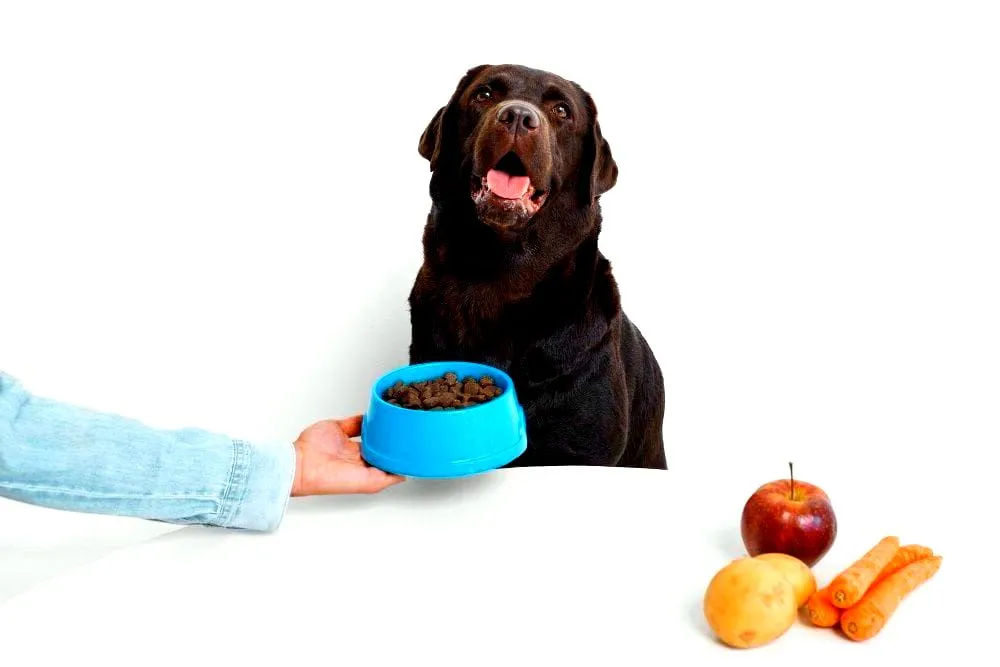
A complete guide to dog food nutrition focuses on crucial aspects of balanced meals for your pet. Providing optimal nutrition is essential for your dog’s health and well-being, ensuring they receive the necessary nutrients for growth and maintenance.
This guide explores key factors to consider when selecting dog food, including ingredients, protein content, and the importance of a balanced diet.
Consider your dog’s age, breed, and any specific dietary requirements in order to make an informed choice. With the right knowledge, you can ensure your dog enjoys a healthy and balanced diet that meets their nutritional needs.
1. Importance Of Dog Food Nutrition
Understanding the importance of dog food nutrition is essential for the overall health and well-being of your furry friend.
This guide provides valuable insights into the nutritional needs of dogs, helping you make informed choices to keep them healthy and happy.
Providing proper nutrition to our furry friends is crucial for their overall health and well-being. Dogs, just like humans, require a balanced diet to thrive.
Feeding them the right nutrients is essential to support their immune system, maintain a healthy weight, and prevent various health issues.
Why Nutrition is Crucial for Dogs
Nutrition plays a vital role in the growth and development of dogs. It provides them with the energy they need to stay active and fuel their daily activities. Additionally, the right nutrients promote healthy skin and coat, strong bones and teeth, and a robust immune system.
Offering a well-balanced diet ensures that dogs receive all the essential vitamins, minerals, and proteins they need to thrive.
Common Health Issues Caused by Poor Nutrition
Feeding dogs a poor diet can lead to various health issues. These may include obesity, allergies, digestive problems, and even a weakened immune system.
Dogs that consume low-quality food may also experience a lack of energy, dull coat, and an increased risk of dental problems.
It’s important to be aware of these potential issues and make informed choices about the food we feed our furry companions.
Benefits of a Balanced Diet for Dogs
A well-balanced diet offers numerous benefits for dogs. It supports their overall health and longevity, ensuring they have the energy and vitality to enjoy life to the fullest.
Proper dog food nutrition can prevent or manage certain health conditions, improve digestion, promote a healthy weight, and enhance the immune system. By providing a balanced diet, we can help our dogs live healthier, happier lives.
| Understanding the Importance of Dog Food Nutrition | Why Nutrition is Crucial for Dogs | Common Health Issues Caused by Poor Nutrition | Benefits of a Balanced Diet for Dogs |
|---|---|---|---|
| Proper nutrition is crucial for dog health and well-being | Nutrition provides energy and supports growth and development | Poor nutrition can lead to obesity, allergies, and weakened immune system | A balanced diet improves overall health, digestion, and weight management |
| It ensures a strong immune system and healthy skin and coat | Feeding low-quality food may cause lack of energy and dental problems | Prevents or manages health conditions and enhances vitality |
2. Essential Dog Food Nutrition
When it comes to dog food nutrition, it is important to ensure that your furry friend is getting all the essential nutrients they need to thrive.
Protein is the building block of a healthy dog, providing the necessary amino acids for growth and maintenance of tissues. Sources of protein include meat, fish, eggs, and plant-based ingredients such as legumes.
Carbohydrates are another important dog food nutrition source, as they provide energy and fiber. Fruits, vegetables, and whole grains are good sources of carbs. It is important to choose carbohydrates that are easily digestible for dogs.
Additionally, healthy fats play a crucial role in maintaining body functions. They help with the absorption of fat-soluble vitamins and provide a concentrated source of energy. Good sources of healthy fats for dogs include fish oil, flaxseed oil, and olive oil.
Vitamins and minerals are also essential for dogs to support overall health. These consist of minerals including calcium, phosphorus, and iron, as well as vitamins A, D, E, and K.
While commercial dog foods are formulated to meet these requirements, it is important to consult with a veterinarian to ensure your dog’s specific needs are met.
Lastly, water is the most important dog food nutrition source. It is essential for proper digestion, circulation, and temperature regulation. Always make sure your dog has access to fresh and clean water throughout the day.
3. Creating A Balanced Diet For Your Dog
Balancing your dog’s diet is crucial for their health and well-being. One important consideration is determining their caloric needs.
Factors such as age, breed, activity level, and weight can influence the amount of calories they require. Consult with your veterinarian to accurately assess your dog’s needs.
Choosing high-quality dog food is another essential aspect of creating a balanced diet. Look for brands that prioritize wholesome ingredients, avoid artificial additives, and are formulated to meet the nutritional requirements for your dog’s life stage.
Reading dog food labels is essential to determine the nutritional value of the product. Look for key information such as the guaranteed analysis, which provides details about the nutrient content.
Consider important aspects such as the source of protein, the level of carbohydrates, and the type of fats used. Additionally, look for any special dietary considerations, such as whether the food is suitable for puppies or dogs with specific health conditions.
Supplements can be used to fill any nutritional gaps in your dog’s diet. Discuss with your veterinarian whether supplements such as omega-3 fatty acids, glucosamine, or probiotics are necessary for your dog’s specific needs. These can help support their overall health, joint function, and digestion.
A Final Word
To sum up, providing your furry friend with proper nutrition is essential for their overall health and well-being. By following this comprehensive guide to dog food nutrition, you can ensure that your beloved pet receives the right kind of diet.
Remember to choose high-quality ingredients, adjust portion sizes according to their age and activity level, and consult with your veterinarian for tailored advice.
Remember, a healthy and happy dog starts with a balanced and nutritious diet. Read More








